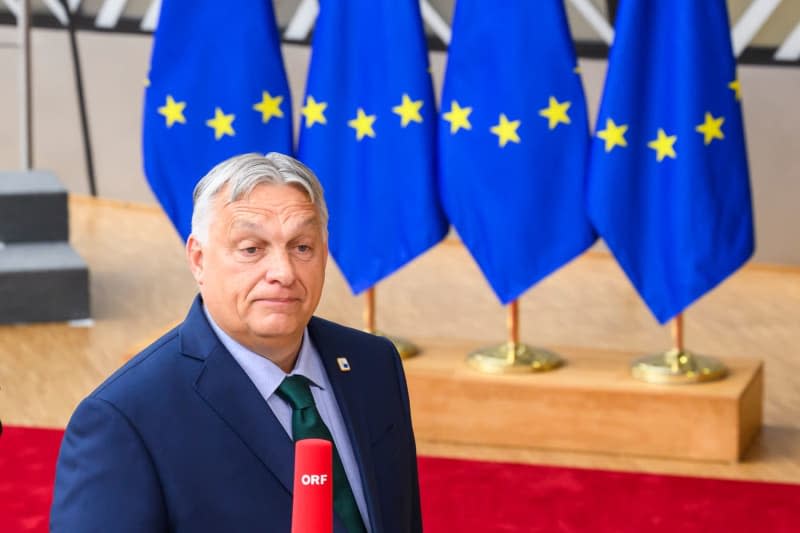Orbán: Political coalition behind von der Leyen disregards election

The three-group coalition backing Ursula von der Leyen's second term doesn't reflect the results of the European Parliament elections, Hungarian Prime Minister told reporters in Brussels on Thursday.
The coalition consists of the centre-right European People's Party (EPP), the centre-left Socialists & Democrats (S&D), and the centrist Renew.
The EPP and the S&D respectively came first and second in the elections, but Renew came fourth, behind the conservative and mildly-eurosceptic European Conservatives and Reformists (ECR).
"It's not based on the merit of the election. If it would be based on the merit of election, that would be EPP, socialist, and ECR, which is the number three," Orbán said. "But instead of ECR, it's Renew, which a clear evidence that this is a party-based deal. Shameful."
Orbán's party in Hungary, Fidesz, is not affiliated to any political group in the European Parliament.
While Fidesz enjoys friendly relations with some ECR parties - such as Poland's Law and Justice Party - other ECR members, such as Belgium's New Flemish Alliance, have refused to countenance admitting Fidesz into the group.


